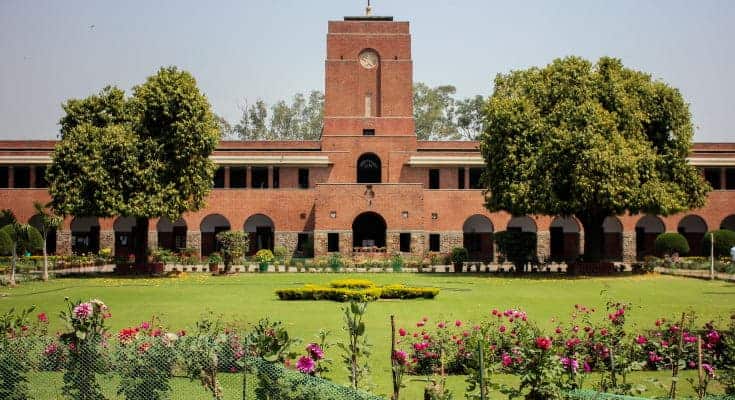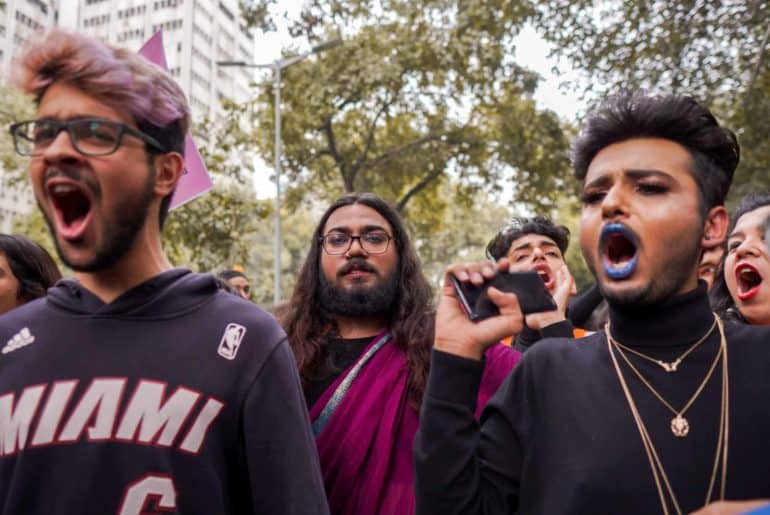Hong Kong, one of Asia’s largest and most development cities is yet again grappled in tensions. The former British colony which was handed over to China as late as 1997, is struggling to keep its identity and freedoms intact from its ruler, i.e. China.
All this started way back in the late 1600’s because of-believe it or not-tea. The British were essentially hooked to this Chinese beverage for which they were prepared to spend any amount of money. The Chinese emperor only used to take payments for tea exports in silver bricks only, which led to the massive degradation of silver in the British Royal treasury. The solution for this problem led to large scale smuggling of Opium by the British to the Chinese people. The payment for the same was now taken by the British in silver and then this silver was used to pay off for tea imports, hence for the British, their problem was solved. But it is at this instance, that history changed its course. This smuggling led to massive crackdowns by Chinese authorities on these smuggling dens which in turn led to the well-known ‘Opium Wars‘. These wars were ended with the Chinese leasing the islands of Hong Kong to the British for 99 years. Hong Kong which earlier was a small fishing village, had an explosion in its economy under the British and went on to become one of the major economic Asian mega cities. This long British rule also made a significant mark on the people of Hong Kong or Hongkongers. As they mostly speak English and Cantonese as opposed to mainland China wherein Mandarin is the dominant language. Also many popular British sports are still played in Hong Kong like cricket, lawn ball, etc.
Cut to 1997, the 99 year lease finished and the British then handed over Hong Kong to China under the condition of ‘One Party, Two Systems‘. This system said that Hong Kong would retain its political and social autonomy for the next 50 years, i.e. till 2047. Though, this agreement was frowned upon in by communist Chinese in mainland China, it was still agreed upon without any problem as at that time Hong Kong’s own economy was around 25% of that of China, so it made sense, economically. It was also given its own constitution which today is known as the ‘Basic Law‘. This constitution is the basis of the Hong Kong’s political and social systems. It guarantees Hongkongers rights like freedom of speech, freedom of expression, etc. which is in stark contrast to the rights given to mainland Chinese. Though this partial autonomy of Hong Kong was only to be present till the year 2047, after which it’d be fully integrated as a Chinese region. But here is where the problem lies, the Chinese government doesn’t want to wait that long, as Hong Kong today isn’t as economically viable as it used to be in the 90’s due rise of mega Chinese cities in the pearl river delta like Shenzhen, Guangzhou, etc. who today are way more economically productive than Hong Kong which presently contributes to only 3% of the Chinese economy. Thus, it is enforcing its propaganda in Hong Kong increasingly and thus is waging a mental as well as a cultural war. This propaganda ranges from pro-China school textbooks and daily Chinese propaganda shows on TV to forceful teaching of Mandarin in Hong Kong schools.
Coming to the present protests against China, it started in the most classical fashion, a murder, which neither took place in China or Hong Kong but in Taiwan. A Hong Kong man with his girlfriend went to Taiwan, wherein he murdered his girlfriend and fled back to Hong Kong. Now as Hong Kong and Taiwan do not have any extradition agreements, the man, who now has pleaded guilty can’t be tried in Taiwan. Hence, the Hong Kong government to deliver justice to the victim’s family proposed the, now infamous, Extradition Bill. But this is the part where China made a shrewd move, the law not only has proposed extraditions to Taiwan but also to mainland China, the same nation which previously has illegally abducted and extradited Hongkongers who spoke against the Chinese Communist Party or the Chinese government. Another important announcement which was made by Taiwan, stated that it doesn’t want to be part of any law that includes China. So, the bill effectively now doesn’t provide justice to the family of the murdered girl but instead would give immense power to the Chinese Communist Party or CCP to silence all the critics as it has done with the whole of mainland China before.
The demands of the protesters are as follows: –
1. Complete withdrawal of the proposed Extradition Bill from the legislative process (as opposed to suspension)
2. Retraction of the characterisation of the protests as “riots”. Release and exoneration of arrested protesters
3. Establishment of an independent commission of inquiry into police behaviour
4. Universal suffrage for Legislative Council and Chief Executives elections
5. Resignation of Chief Executive of Hong Kong, Carrie Lam
These demands, though have been taken ‘very seriously‘ by the government but still haven’t been met. Only one demand has been partially met, the bill is now suspended but not completely withdrawn. This according to the protestors isn’t enough as the bill even if proposed in the Hong Kong’s LegCo (Legislative Council) is surely going to pass as the assembly itself is made in such a way that only pro-China parties always form the majority, even though in every election pro-democracy parties have been winning. Even the head of Hong Kong or the Chief Executive of Hong Kong isn’t selected by Hongkongers but is selected and approved by the CCP. The present Chief Executive Carrie Lam thus, doesn’t care about Hong Kong as long as China is happy. Hongkongers are carrying out these protests in a very peaceful manner also, but the Chinese authorities aren’t peaceful at all with their methods as they’ve been using weapons like tear gas grenades and water cannons, also the Chinese authorities have classified this protest as a riot which has resulted into arrests of non-violent protesters and more so Hongkongers. This shows the vulnerability of the Chinese regime which is so scared of an independent population that they go to unforseen and unethical depths to shut such people. The protest now has been going on for more than six months and has witnessed many events. The protestors though were successful in getting the bill withdrawn on 23rd October, but the protest now has broadened to more democratic liberties from China. From Molotov cocktails to turning of the Polytechnic University or PolyU into a battleground, the peaceful protests have now turned violent. Though it should be noted that this violence has grown in the last two months only, before which the protests were largely peaceful. Both sides, i.e. Hongkongers and the Chinese blame each other for the violence. In recent months even pro-China mobs have come out to protest against Hongkongers itself. Thus, till now no possible ending of the protests is insight.
So, these people who are on the streets every weekend (as they work on weekdays) are fighting for their freedom and rights, they are fighting for fairness, justice and most importantly they are fighting for their own self-respect. As long as Hong Kong and its people stand in the way, they won’t let the Chinese regime to take away their freedoms from them so easily or any time before 2047.
Feature Image Credits: Jerome Favere
Aniket Singh Chauhan
[email protected]










